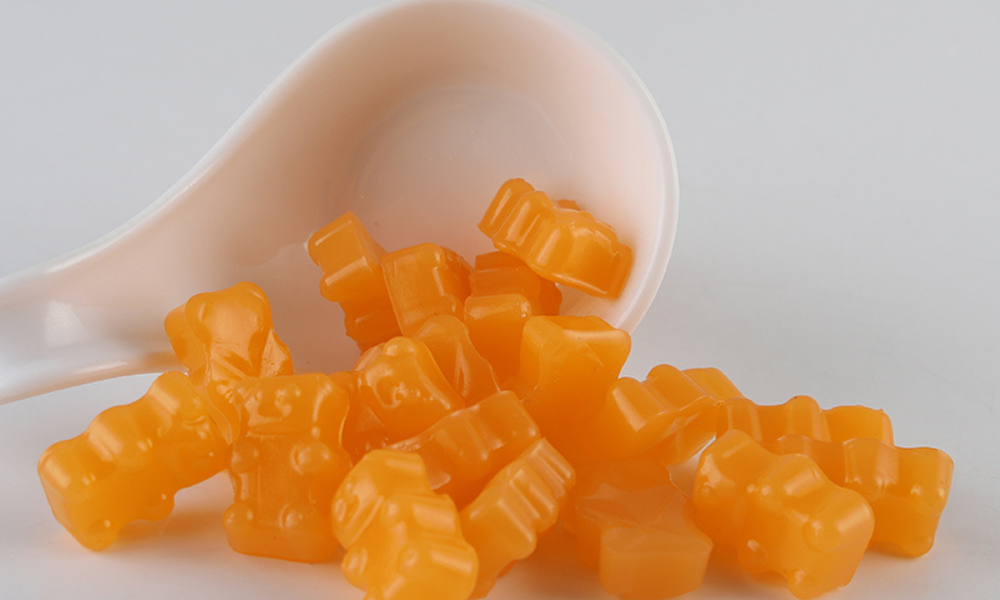In recent years, gummy supplements have taken the health and wellness industry by storm. Among these trendy offerings are gummy probiotics, which claim to support gut health and enhance overall well-being.
But do these chewy delights truly deliver the promised benefits? In this article, we will explore the world of probiotics, their role in the human body, and assess the validity of gummy probiotics as an effective health booster.
Understanding Probiotics: The Guardians of Gut Health
Before diving into the world of gummy probiotics, it is essential to understand what probiotics are and their importance in maintaining a healthy gut.
Probiotics are live bacteria and yeasts that confer numerous health benefits when consumed in adequate amounts. They naturally occur in certain foods and can also be taken as dietary supplements.

The human gut is home to trillions of microorganisms, including both beneficial and harmful bacteria. Probiotics primarily operate by promoting the growth of beneficial gut bacteria and inhibiting the growth of harmful ones.
This delicate balance plays a vital role in supporting digestion, immune function, nutrient absorption, and overall wellness.
The Rise of Gummy Supplements: A Convenient Alternative
Gummy supplements have gained popularity due to their convenience and pleasant taste, making them an attractive alternative for individuals who struggle with swallowing pills or capsules.
The concept of gummy supplements originated in the early 1960s, and since then, they have become increasingly prevalent in the market, catering to various health needs.
Probiotic gummies, in particular, have gained traction as a simple and enjoyable way to incorporate probiotics into one's daily routine.
These chewable treats come in various flavors, shapes, and formulations, making them appealing to both children and adults.
The Power of Probiotics: Unraveling Their Benefits
Scientific research suggests that probiotics offer a plethora of health benefits, especially when it comes to gut health.
Numerous studies indicate that consuming probiotics can help alleviate digestive disorders such as irritable bowel syndrome (IBS), diarrhea, and constipation.
Furthermore, probiotics have shown promise in enhancing the immune system, reducing inflammation, and even supporting mental health.
Research indicates that the gut-brain connection is intricate, and maintaining a healthy gut microbiome may contribute to both immune health and improved mood and cognitive function.
Gummy supplements have gained popularity as a fun and tasty alternative to traditional supplement forms like pills or capsules. Here are some pros and cons to consider:
Pros:
Taste and Enjoyment
One of the main advantages of gummy supplements is their delicious taste. By incorporating various fruit flavors, manufacturers have made these supplements more enjoyable to consume compared to traditional pills.
This can be particularly beneficial for individuals who struggle with swallowing pills or dislike their bitter taste.

Easy Consumption
Gummy supplements are easy to consume, especially for those who have difficulty swallowing or have a sensitive gag reflex. The soft and chewable texture allows for effortless ingestion, making them a favorable choice for children and adults alike.
High Daily Dosage
Gummy supplements often contain higher doses of vitamins and minerals compared to traditional pill supplements. This can be advantageous for individuals who require larger quantities of certain nutrients due to dietary restrictions, health conditions, or deficiencies.
With higher daily doses, gummy supplements can help bridge nutritional gaps more effectively.
Cons:
Sugar Content
One significant concern regarding gummy supplements is their sugar content. To enhance their taste, manufacturers often use added sugars and artificial sweeteners.
Excessive sugar intake can contribute to various health issues such as weight gain, tooth decay, and increased risk of chronic diseases. It is crucial to read the labels and choose gummy supplements with minimal added sugars or opt for sugar-free alternatives.
Caloric Intake
Gummy supplements may also contribute to caloric intake. While the caloric content per gummy is generally low, consuming multiple gummies throughout the day can add up.
Individuals who are watching their calorie intake or trying to lose weight should be mindful of the overall caloric contribution from gummy supplements.
Potential Allergens
Some gummy supplements contain allergenic ingredients such as gelatin, which is derived from animal sources. This can pose a problem for individuals with dietary restrictions, food allergies, or those following specific dietary lifestyles such as vegetarian or vegan diets.
It is essential to read the product labels and choose gummy supplements that align with individual dietary needs.
Overconsumption Risks
The appealing taste and texture of gummy supplements can lead to overconsumption. It is crucial to follow the recommended dosage indicated on the packaging or as advised by a healthcare professional.
Consuming excessive amounts of certain nutrients can lead to imbalances in the body and potentially harmful side effects.
Selecting the Best Probiotic Supplement: Key Considerations
When selecting a gummy probiotic supplement, there are a few key considerations to keep in mind:
Strain Diversity
Look for gummy probiotics containing multiple bacterial strains, as different strains offer distinct benefits.
Colony Forming Units (CFUs):
CFUs indicate the number of live bacteria present in each serving. Opt for gummies with a higher CFU count, preferably in the range of billions.

Shelf Stability
Ensure that the gummy probiotics are formulated to withstand environmental factors and maintain potency during storage.
Additional Ingredients
Check the ingredient list for any potential allergens or unnecessary additives.
Potential Disadvantages and Side Effects
While probiotics are generally considered safe for most individuals, some potential disadvantages and side effects may arise, especially in certain populations. These can include mild digestive discomfort, gas, or bloating.
It is always advisable to consult a healthcare professional before starting any new supplement regimen, particularly if you have underlying health conditions or are on medication.
Recommended Dosage
The recommended dosage of probiotics varies depending on the specific strain and product. It's important to follow the instructions provided on the product packaging or consult with a healthcare professional for personalized guidance.
Generally, a full daily probiotic dose of 1-10 billion CFUs (colony-forming units) is considered sufficient for most individuals.
The Verdict: Are Gummy Probiotics Worth Taking?
Considering the wealth of scientific evidence and the potential benefits they offer, gummy probiotics can be a convenient and enjoyable way to support gut health.
While there may be limited research specifically on gummy formulations, the foundational science supporting the effectiveness of probiotics remains robust.

However, it is important to note that not all gummy probiotics are created equal. When selecting a supplement, it is vital to prioritize quality by choosing well-researched strains with sufficient colony forming units (CFUs).
Additionally, maintaining a diverse and balanced diet, along with adopting other healthy lifestyle habits such as regular exercise and stress management, plays a crucial role in supporting overall gut health.
It is essential to remember that maintaining a healthy gut requires a holistic approach that encompasses a balanced diet, regular exercise, and sufficient sleep.

Ad Sponsor
Gummy Probiotics FAQ's
Are probiotic gummies safe for kids?
Probiotic gummies can be considered safe for children, and it is usually better to talk to a medical practitioner before giving them to your child. It's important, especially when you have a kid with a health condition that you may be taking medication for.
A probiotic gummy may also contain sugar or other sweeteners that may cause dental irritation. If you have any concerns about it you might prefer a sugary gummy or one which carries xylitol, which is a dental sweetener.
What foods are rich in probiotics?
Foods that are rich in probiotics include yogurt, kefir, sauerkraut, kimchi, miso, tempeh, kombucha, and pickles. Additionally, some fermented foods such as sourdough bread, sourdough crackers, and sourdough pretzels are also good sources of probiotics.
Which is best, probiotics or prebiotics?
It depends on your individual needs. Probiotics are live microorganisms that can help to restore the balance of bacteria in your gut, while prebiotics are non-digestible fibers that help to feed the beneficial bacteria in your gut.
Both can be beneficial for your digestive system and health, but it is important to consider your individual needs when deciding which is best for you. Probiotics may be more beneficial for those with digestive issues, while prebiotics may be more beneficial for those looking to improve their overall gut health.
Isn't bacteria bad for my body?
Not necessarily. In fact, there are many beneficial bacteria that live in our bodies and help us to stay healthy. These beneficial bacteria help to keep our digestive systems functioning properly, boost our immune systems, and even help to synthesize vitamins and minerals. Without these beneficial bacteria, our bodies would be much more susceptible to disease and infection.
Are probiotic gummies good for IBS?
Yes, probiotic gummies can be beneficial for people with IBS. Probiotics are beneficial bacteria that can help to restore balance to the gut microbiome, which can help to reduce symptoms of IBS such as bloating, gas, and abdominal pain.
Probiotic gummies are a convenient way to get your daily dose of probiotics, and they can be especially helpful for people who have difficulty swallowing pills. However, it is important to note that probiotic capsules and gummies are not a substitute for a healthy diet and lifestyle, and they should be used in conjunction with other treatments for IBS.
What time of day should I take probiotic gummies?
It is best to take probiotic gummies with a meal or snack. This helps to ensure that the probiotics are able to reach the gut and begin to work. Taking probiotics on an empty stomach can reduce their effectiveness, as the stomach acid can kill off some of the beneficial probiotic bacteria.
Additionally, taking probiotics with food can help to increase their absorption rate.
Are gummy probiotics as effective as pills?
Gummy probiotics have the same effectiveness as other forms like a capsule or powder. Nonetheless it must be noted that not every gummy is made equal. Some probiotic gummies benefits contain more living bacteria that others have and some are easy to absorb.
Probiotic Gummies can give you your daily doses of probiotic vitamins and minerals, particularly for people who don't like pill and powder products. Gummy probiotics are equally as powerful as some types of probiotics like capsules or capsule tablets. However, not everyone can use gummy gummies. Some gummies may contain live organisms and some may not be as easily digestable.
Final Thoughts
Gummy probiotics can be a worthwhile addition to your daily routine, especially if you struggle with swallowing traditional capsules or tablets. The convenience and enjoyable nature of gummy probiotic supplements can make them an accessible option for individuals of all ages.

It is advisable to consult a healthcare professional before incorporating gummy probiotics into your routine, especially if you have underlying health conditions or take medications.
In summary, while gummy probiotics offer a convenient and enjoyable way to support gut health, it's important to view them as just one piece of the puzzle for overall well-being.
By carefully selecting the right supplement and prioritizing healthy lifestyle habits, gummy probiotics can serve as a valuable tool in enhancing gut health and promoting overall wellness. It's crucial to consider gummy probiotics as a complement to a holistic approach to health, rather than relying solely on them as a standalone solution.
Other Article of Interest:











